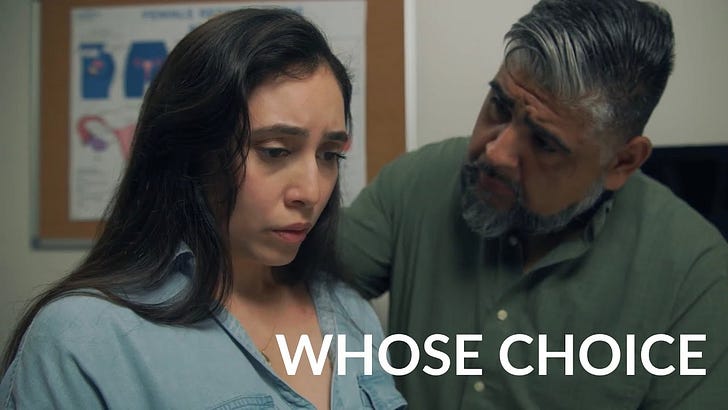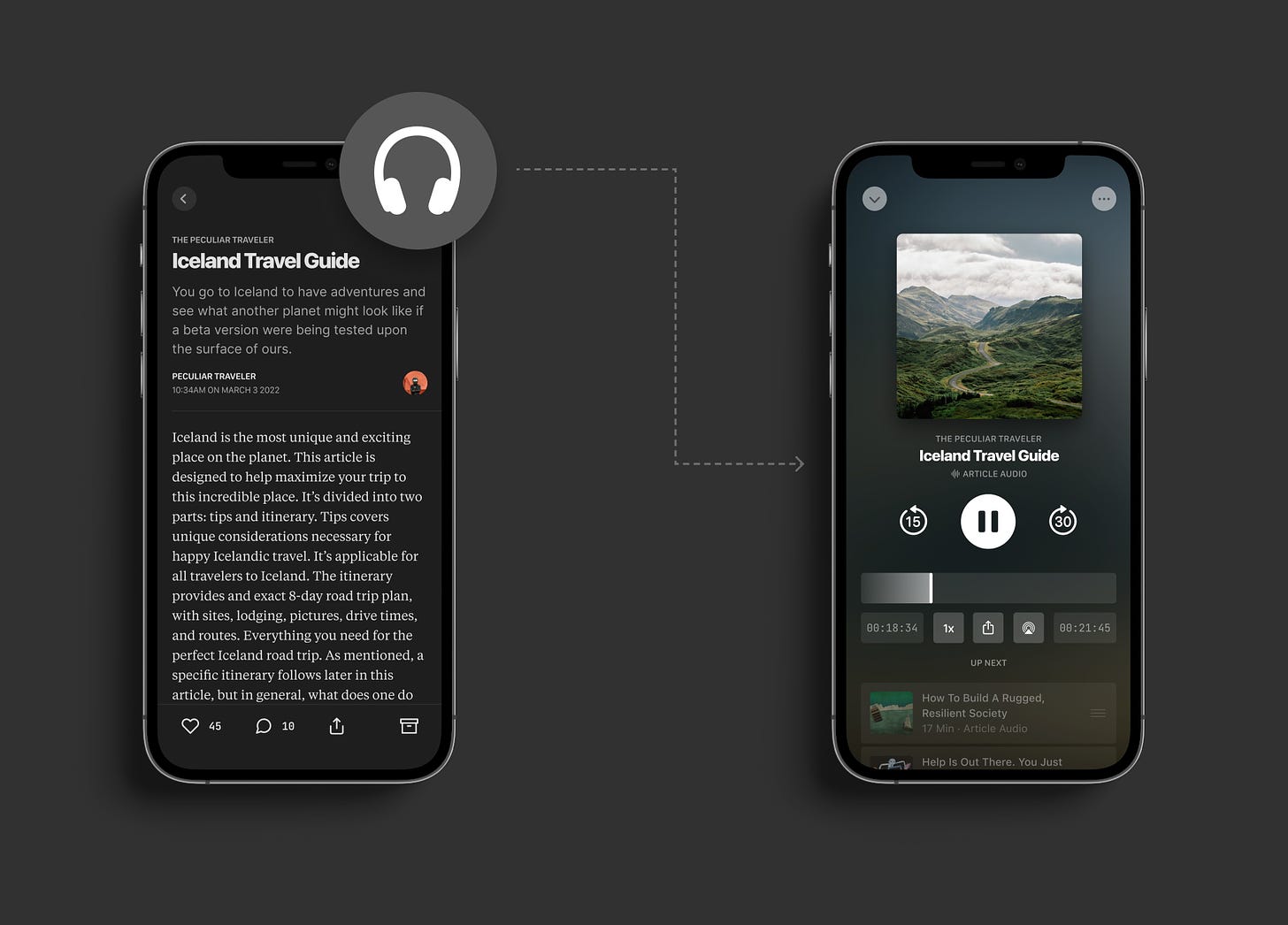👩🏻⚖️ Abortion is About More Than Abortion.
Thinking about a very complicated and fast-moving issue.
Did you know that you can now listen to audio transcriptions of the UnfairNation newsletter? Just use the Substack iOS app and click the headphone icon 🎧 at the top of a post to listen!
I’m also going to try out shorter weekly newsletters for a bit. Let me know what you think!
Abortion law is about privacy (when it should be about freedom)
Daniel Solove - a George Washington University privacy law expert who I often assign in class - spends an entire book trying to define privacy and finding no satisfying answer at the end.
That’s because privacy is hard to define. It means different things to different people. Privacy may mean a secret you keep from everyone, or only from those who aren’t close friends. It may mean keeping parts of your body out of view from strangers, or it may mean preventing people from using your likeness or photo in ways you don’t approve of.
In Roe v. Wade the Supreme Court determined that a woman’s choice to get an abortion fit into an expansive definition of privacy - a definition that encompassed all of the scenarios above. The Roe court held that the government didn’t really have any business interfering in a woman’s private choice to give birth until her actions became potentially unsafe, at which point the government’s interest in the safety of its citizens exceeded a woman’s right to bodily autonomy. The court decided to draw this line at the first trimester.
“Privacy is a poor substitute for gender equality” - RBG
Using a difficult to define concept like privacy is a really crappy way of protecting gender rights because it is a workaround that never actually says that bodily autonomy should be protected for its own sake.
Unlike the U.S., in other nations abortion rights are placed within the much broader framework of human rights - where freedom, choice, or bodily autonomy form the rationale for legalizing abortion. Here in the United States the rationale for abortions is: consent, non-interference, or bodily privacy - a legal framework that can be challenged a lot more easily than one built around human dignity.
Challenges to other privacy rights are coming, and the Supreme Court is on board
Those challenges to other privacy rights are more likely than you think and something the Supreme Court has already signaled it is willing to consider. In his Dobbs concurrence, Justice Clarence Thomas said that the Supreme Court “should reconsider” three fundamental privacy decisions and “correct the (due process) error” established in those cases. The three cases are:
Griswold v. Connecticut: a 1965 decision that expanded privacy rights to include a married couples ability to use contraception.
Lawrence v. Texas: a 2003 case that made same-sex sexual activity constitutional nationwide.
Obergefell v. Hodges: a 2015 case that established the constitutional right to same-sex marriage.
(interracial marriage was interestingly left out of this list. I wonder why.)
These cases also relied on the shaky foundation of concepts like privacy rather than human rights or autonomy. Because these rights are also vulnerable to the same flaws in legal reasoning, future courts relying on the Dobbs decision may potentially erase decades of gains in sexual and reproductive self-determination.
Here’s how:
The Dobbs court bases its decision to nullify federal abortion rights on the idea that abortion isn’t mentioned anywhere in the Constitution, nor considered a privacy right when the Due Process Clause was ratified in 1868. The same logic applies to interracial marriage, same-sex marriage, contraception, and many other bodily privacy rights that also find no mention in the Constitution and also did not exist when the Due Process Clause was ratified in 1868, and would therefore now be considered unconstitutional under the logic of Dobbs' majority opinion.
The Supreme Court is no longer fulfilling some of its core functions
One of the Supreme Court’s essential functions is to resolve confusion arising from a patchwork of state laws. This is what the Court did when it made same-sex marriage the law of the land, at once resolving dozens of conflicting state laws regarding same-sex marriage licenses, taxes, divorces etc., across the country.
With Dobbs the Court has done the exact opposite, setting the stage for each state to restrict or expand access to the abortion in a confusing mix of overlapping laws (which will have the greatest impact on low-income women of color).
For instance, after Dobbs states like Texas, with particularly aggressive legislation and criminalization of abortion, now have the legal power to subpoena services like Microsoft and Google, as well as period-tracking apps like Flo, to identify a potential defendant’s location information for abortion cases or their likelihood to get an abortion. Meanwhile, states like California are now protecting abortion rights. But what happens if you regularly travel between Texas and California? What if you split your time between those two states? Get ready for a whole mess of litigation.
The opinions of most Americans don’t matter
Part of the reason the Court doesn’t care about state-by-state confusion is because it is less concerned with what the majority of Americans think.
The Supreme Court in modern times has rarely been out of step with public opinion. That is no longer the case. Dobbs and other recent opinions show that at least the five conservative justices are willing to court controversy on issues they care about (that pun tho).
Justice Alito said as much in Dobbs:
“We cannot allow our decisions to be affected by any extraneous influences such as concern about the public’s reaction to our work.”
Later, Justice Thomas noted that “We can’t be an institution that can be bullied into giving you just the outcomes you want.”
These comments signal that fervently held minority positions will determine judicial opinions as much as, if not more than, the opinions of the majority, especially most women. Ostensibly inspired by Christian ideals but also secular principles, the United States is starting to look like a nation bound by the latter - whereas the organs of its government increasingly draw inspiration from the former.
We are in no position to lecture other countries about rights
When I worked in the government I would travel internationally and share the virtues of the American system of rights which allowed a religious and racial minority like me to live with relative freedom, pray where and when I wanted and to the God I believed in, speak my mother tongue and express myself culturally as I wished - in a way I probably could not do even in the country where I was born.
The Dobbs decision and other developments over the last two decades make this kind of argument impossible to make.
While the U.S. continues to place limits on transgender rights and women’s bodily autonomy, the rest of the world (including Christian-majority nations) is expanding - not limiting - family planning options.
Finally, criminalizing abortion just doesn’t work
Highly restrictive laws do not eliminate abortion. They only make abortions that do occur far more likely to be unsafe. More on this later.
🎧 Now Playing on the UnfairNation Podcast

🕺🏽 Friends
Join me and a number of good friends at the PopTech conference in Washington D.C. this October. It is a tremendously fulfilling experience, both personally and professionally.
Good friend Nick Martin of TechChange is hiring! Check out this Director of Partnerships role and drop me a note to learn more.
✈️ Catch Me If You Can
Phoenix, AZ | Aug 8-10
📅 Reading & Watching
Season 16 of the UK version of the Apprentice (I can see you judging me).
🙌🏽 FairNation
Twelve-year old Brody Ridder had to sign his own yearbook in lieu of friends after a year of intense bullying. That is until Paul Rudd got wind of it.
I think it's about time to announce that I was born at a very early age.









